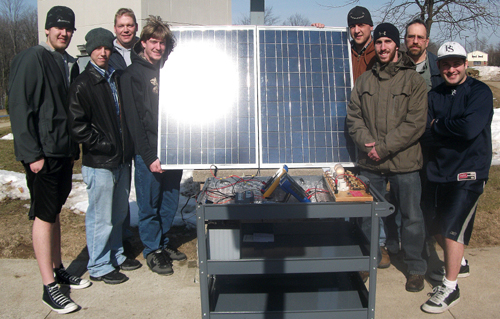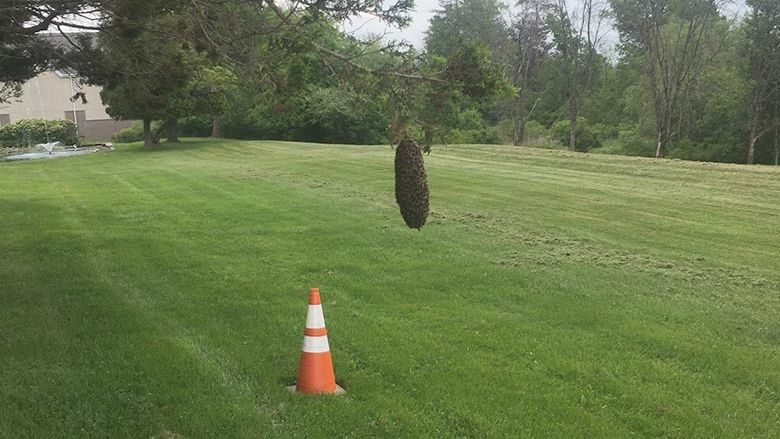Junior and senior electrical engineering technology students at Penn State Wilkes-Barre recently spent time in their EET 497: Special Topics course studying the principles of renewable energy conversion and its sustainability. Their studies include turbo-machinery, hydro power, wind power, solar power, fuel cells, biomass, nuclear power, and geothermal energy resources.
Taking a hands-on approach to learning about solar energy, students examined solar panels, how they work, and how they can adjust a panel's position for optimum energy production.
"We are the future engineers of the world. Now seems like the right time to expand our knowledge of 'cleaner energy' and, who knows, one day we may change the planet," said Daniel Dymond, a senior in the B.S. Electrical Engineering Technology program.
Dr. Robert Faux, Senior Instructor in Engineering and instructor for the EET 497 course, said, "A student will leave the course with a sense that important energy decisions need to be made based on the realities of energy need versus capacity, the environment, national and global economies, safety, reliability, consumer cost, and transmission."
Students studying electrical engineering learn detailed knowledge relating to the different aspects of alternative energy. In addition to learning the technical skills, the students evaluate project costs, associated economic impacts, and political and environmental implications.
For more information, please contact Melissa Gunshannon, Public Information Coordinator at Penn State Wilkes-Barre, at [email protected] or 570-675-9269.

Students in the B.S. Electrical Engineering Technology program at Penn State Wilkes-Barre harness the sun's energy in a recent hands-on class project.
From left: Daniel Dymond; Ryan Hammond; Dr. Robert Faux, Senior Instructor in Engineering at Penn State Wilkes-Barre; Jason Hady; Andrew Kempinski; Joe Homza; Thomas Bator; and Richard Kaminski
